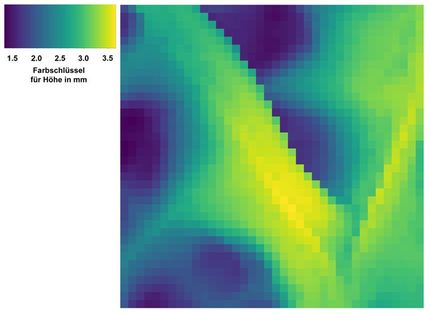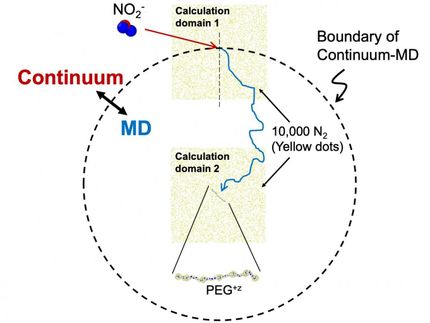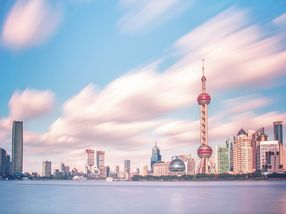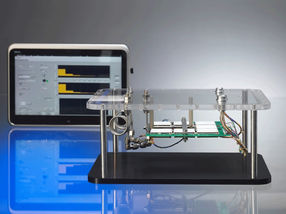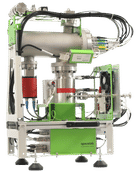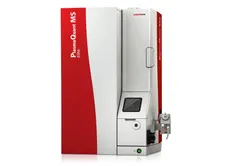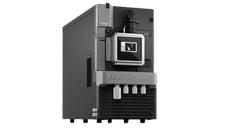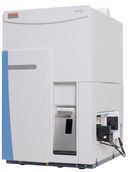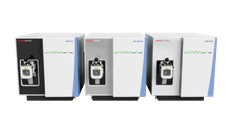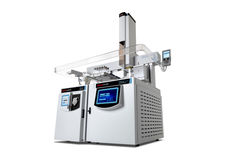Process analysis in real time
With a real-time mass spectrometer developed by Fraunhofer researchers, it has become possible for the first time to analyze up to 30 components simultaneously from the gas phase and a liquid, including in-situ analysis. This sensitive measurement system is also suitable for the automated monitoring and control of chemical reactions and biotechnological processes.
The automated detection of products or by-products directly during the process has become an indispensable part of monitoring production processes. Mass spectrometry is a quick and selective method of analyzing compounds in technical, chemical and biotechnical applications – simultaneously, with a high degree of sensitivity, and over an extremely large measurement range. Besides the identification of compounds, this method also makes it possible to evaluate the ion currents quantitatively. By means of integrated data evaluation, concentrations of the monitored substances can be determined and changes of concentration – for example in chemical or biochemical reactions – can be measured and recorded.
However, detection in process mass spectrometry has till now been limited to compounds from the gas phase. Now researchers from the Fraunhofer Institutes for Chemical Technology ICT, Pfinztal, and Interfacial Engineering and Biotechnology IGB, Stuttgart, have developed a mass spectrometer with which both gases and liquids can be monitored simultaneously in real time.
Multiple inlets with integrated membrane
The centerpiece of the new, patented measurement system foxySPEC is a modified bypass inlet located on the analyzer unit, with which components from the liquid phase can also be analyzed. A microporous membrane is mounted on this inlet. “Driven by the vacuum on the permeate side, volatile substances from the liquid sample vaporize and pass through the membrane,” Martin Joos from Fraunhofer ICT explains. On the other hand, the membrane is impermeable to polar, aqueous solutions. Additionally, its special spatial structure makes it resistant to clogging by solids.
In addition to this, a newly developed measurement sensor makes it possible to carry out even in-situ analysis of liquids, for example in fermenters used for biotechnological production processes. The process engineer Matthias Stier from Fraunhofer IGB describes the advantage: “In such a case the membrane, which is integrated in the measurement sensor, is located directly inside the reactor that is to be monitored.” Due to the physical phase transfer in the chemically inert membrane, the two membrane inlet systems do not display any cross-sensitivity and are very stable in the long term. The new membrane inlets are installed additionally to conventional gas inlets.
Automated control for real-time analysis
With the control unit, the user can determine which inlet is selected by the sampler. IGB engineer Stephan Scherle explains: “The Siemens programming developed by Fraunhofer IGB enables us to select samples within seconds by using the appropriate valve – switching between gas, liquid and in-situ analysis as required – and therefore providing results in real time.” Also, the quadrupole mass spectrometer employed is equipped with auto-calibration, so that up to 30 components can be detected simultaneously in a complex mixture of substances, without previous separation.
A wide range of applications
The detection limits of foxySPEC are below 10 µg substance per liter and thus in the lower ppm range. Since the gases are sucked into the vacuum system of the detection unit via stainless steel pipes, distances of over 10 meters to the point of withdrawal are feasible. Time-consuming and cost-intensive transfer of the samples by pumping is no longer necessary. Depending on the length and diameter of the stainless steel capillaries, gases can be measured in real time – in the vacuum down to 1 mbar or at overpressure up to 100 bar.
The real-time mass spectrometer is suitable for a wide range of applications in the chemical industry and biotechnology, pharmaceutics and food production. Further solutions are to be developed for specific industries.
Suitable for Industry 4.0
The low detection limit, the possibility of measuring several components at the same time and the high speed at which data are generated, are ideal prerequisites for making processes more efficient on the basis of continuous monitoring. In terms of the “Industry 4.0” platform, the data can be analyzed in real time using intelligent programs, in order to identify other, previously neglected parameters in processes, and thus further optimize and speed up production. Since foxySPEC detects all masses that enter the measurement system, the unit is not just restricted to one substance, as with most sensors. Consequently foxySPEC can be used flexibly and is the ideal measurement system for demand-driven production. “If various products are being manufactured in a plant in accordance with a customer’s requirements, foxySPEC can be used directly as a measuring unit without any need for further conversion or modifications,” says Matthias Stier.
Spin-off company and marketing idea
Fraunhofer Venture supports the preparation of a spin-off company for the production, sales and marketing, and the remote maintenance of the foxySPEC real-time process mass spectrometer with funds from the program “Fraunhofer promotes Entrepreneurs”. The utilization concept developed in this context entails providing foxySPEC with a self-developed connect box, which enables the remote maintenance of the unit. Thus the user does not have to be an expert in the field of mass spectrometry.
foxySPEC is to be distributed via a B2B model. Currently the Fraunhofer team of developers is looking for distribution partners who will pass on the system, integrating foxySPEC as part of the user’s own system – in a so-called OEM (Original Equipment Manufacturer) version. foxySPEC is expected to be available on the market from August 2017.
Demonstration at Analytica
The Fraunhofer researchers will use a first compact prototype to demonstrate how sensitively and selectively the mass spectrometer works. The demonstration can be seen at Analytica, Munich, from May 10 to 13, 2016 at the Fraunhofer joint stand in Hall A1, Stand 526.
These products might interest you
See the theme worlds for related content
Topic World Mass Spectrometry
Mass spectrometry enables us to detect and identify molecules and reveal their structure. Whether in chemistry, biochemistry or forensics - mass spectrometry opens up unexpected insights into the composition of our world. Immerse yourself in the fascinating world of mass spectrometry!

Topic World Mass Spectrometry
Mass spectrometry enables us to detect and identify molecules and reveal their structure. Whether in chemistry, biochemistry or forensics - mass spectrometry opens up unexpected insights into the composition of our world. Immerse yourself in the fascinating world of mass spectrometry!
